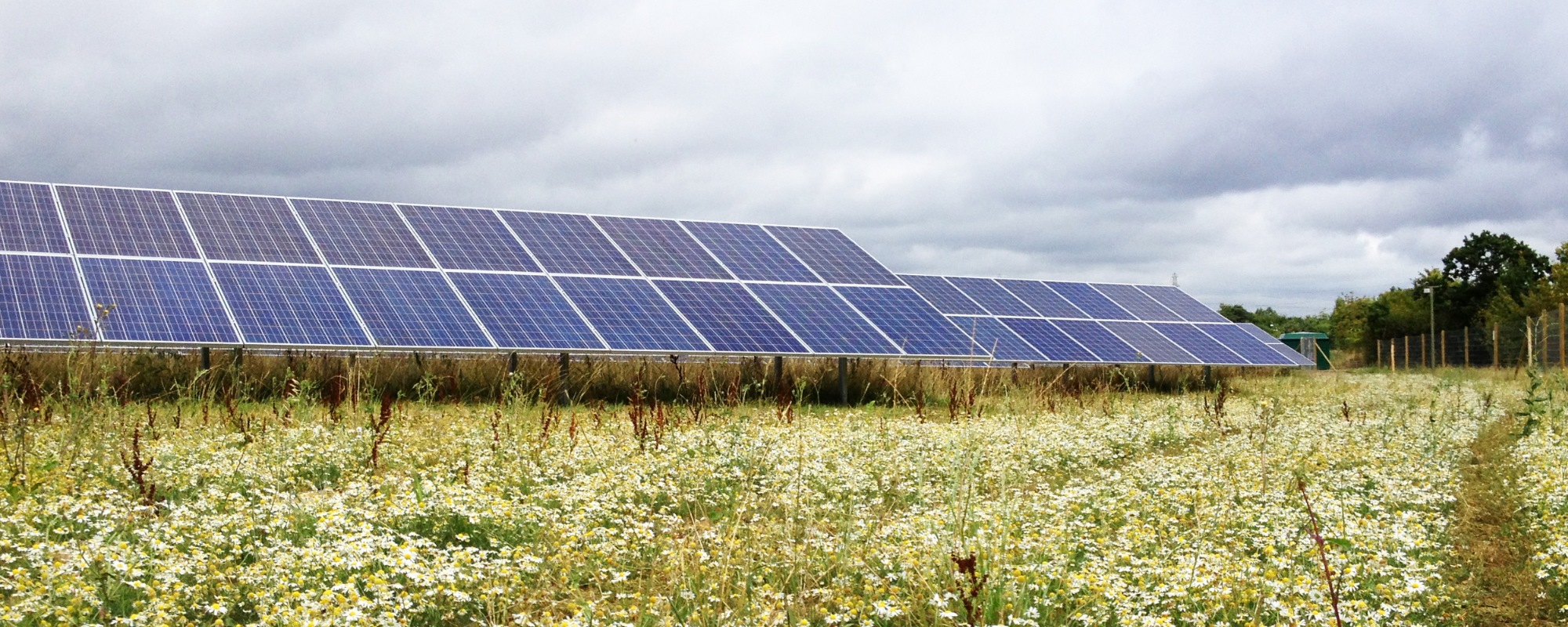Do solar panels work on cloudy days?
Solar panels continue to generate clean, renewable electricity even on gloomy days. This is good news, considering few places in the world enjoy dazzling sunshine all year round. But how do solar panels work when it’s cloudy, what effect does this have on generation, and how do we build solar projects to make them as efficient as possible?
Daylight vs sunlight
Most of us long for sunshine all year round. But, in many parts of the world, overcast days and dark grey storm clouds are typical for much of autumn, winter and even spring.
In countries with these kinds of climates, this fact of nature has raised questions about the feasibility of solar power generation. But, while clear skies are preferable, solar can produce plenty of electricity on cloudy days as well.
Solar photovoltaic (PV) panels rely on daylight, rather than direct sunlight or heat. Even on the stormiest, cloudiest days, we can still see our surroundings, because rays of light from the sun are able to penetrate the clouds and reach us on the ground. That same light is absorbed by solar panels and converted into electricity, which powers people’s homes directly or, in our case, is fed into electrical grids.
So, as long as the sun comes up, panels will generate electricity!
Varying conditions, varying power
The amount of electricity generated by solar panels can vary significantly depending on levels of cloud cover.
According to one study, solar panels are 76% effective even when there is light cloud cover. During heavy rain output drops, but this does have the added effect of cleaning dust and dirt from the panels which improves their overall efficiency. A silver lining of cleaning dust and dirt from the panels which improves their overall efficiency. Speaking of silver linings…
Dutch researchers have found that solar power production could be stronger under partially cloudy skies – compared to clear skies – because clouds reflect more light, which is good for solar generation.
When do solar panels work best?
It might seem counter-intuitive, but in the Northern Hemisphere solar panels actually tend to perform best in spring, when the days are relatively bright but air temperatures are still moderate.
In some hotter climates, like Spain, data from sites we have developed shows that our panels perform best in January and February. However, the longer daylight hours mean the overall electricity output from solar is higher during the summer months.
Energy storage
While the sun doesn’t shine constantly, improvements in energy storage technologies are rising to address the challenge. Developments in batteries and other solutions are making it easier to store excess solar energy for later use, whether that’s keeping the lights on after dark or shoring up an overloaded grid in an emergency. From generation through to transmission and distribution, utility-scale storage helps to ensure a smooth supply of power.
These technologies are being rolled out at scale. Over 11GW of grid-scale battery storage capacity were added across the world in 2022 alone, nearly double the growth in the previous year. At Lightsource bp, we’re investing in battery energy storage to support the 60GW of solar we’re currently developing worldwide. That includes our Tiln battery project in the UK, which provides 25MW of storage for our Tiln solar farm.
The most predictable energy source on Earth
The sun is the most predictable source of energy we have on Earth. While it shines more brightly on some days than others, it can always be relied upon to deliver reliable, sustainable solar power to businesses and communities around the world.
You can find out more about our mission to scale up solar on The power of solar.
Latest news
10 Jul, 2025
Lightsource bp championing sustainable agriculture at AgriVoltaics World Conference 2025
Lightsource bp was proud to be the Gold Sponsor at the AgriVoltaics World Conference 2025 in Freiburg, Germany.
26 Jun, 2025
Lightsource bp signs first PPA in Taiwan with Star Trade for pilot fishery solar project
Lightsource bp has signed a power purchase agreement (PPA) with Star Trade for its Budai solar project in Taiwan.
10 Jun, 2025
Lightsource bp secures financing on its first project in Taiwan and its pilot fishery solar project globally
Lightsource bp, a leading developer and manager of global onshore renewable energy projects, has secured financing for its 115MWp fishery solar project in Taiwan.




